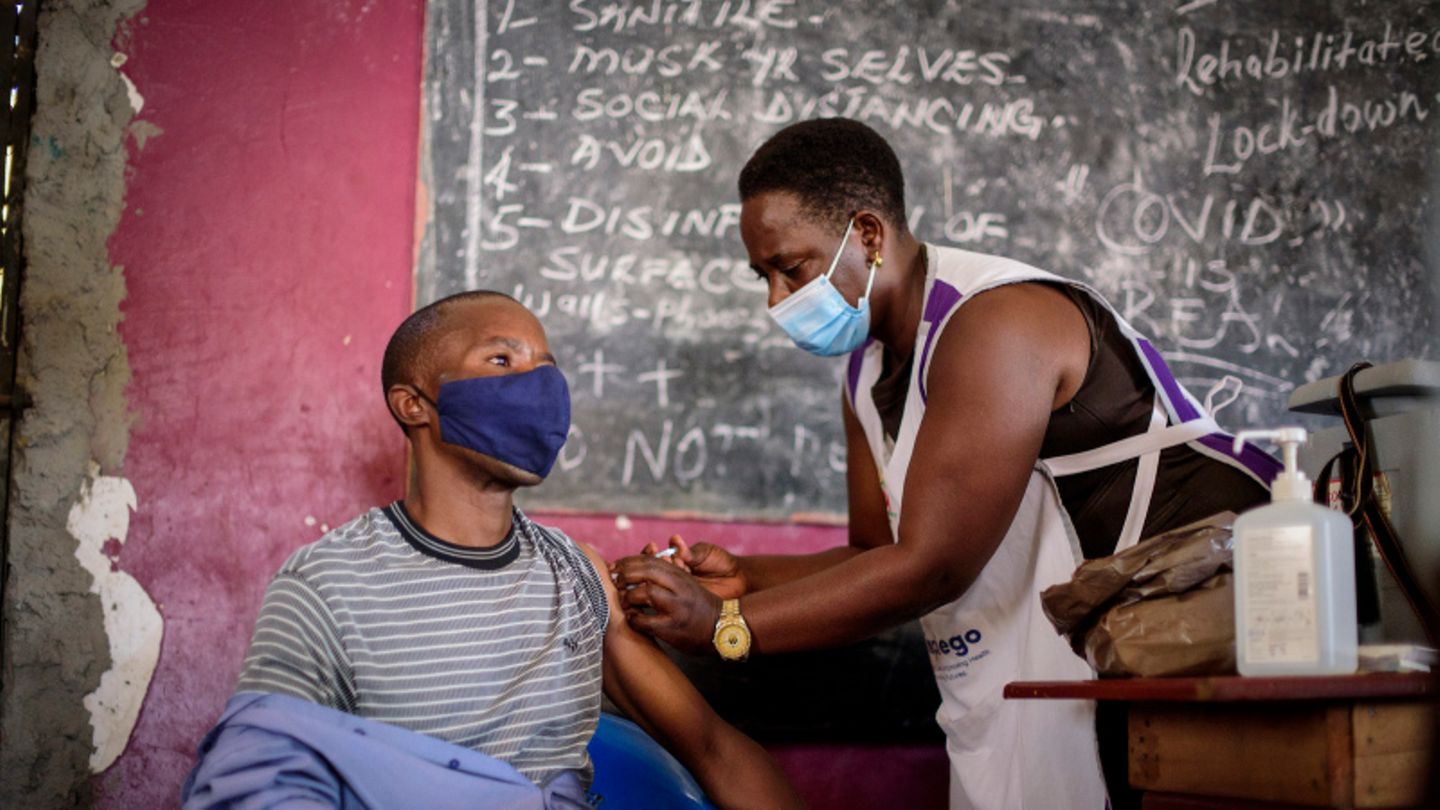To analyse
US President Joe Biden calls for a 70 percent vaccination quota worldwide – within a year. For this to succeed, a lot has to change in and above all for Africa.
If US President Joe Biden has his way, the corona pandemic will finally be history at the end of 2022. He claims that 70 percent of the world’s population should be vaccinated within the next year. Realistic mammoth task or a dream that is hardly feasible?
In the USA and Germany, more than half of all people enjoy complete vaccination protection; there is already talk of a booster dose. In many African countries, however, not even one percent of the population is vaccinated like oneinteractive vaccination card from the “New York Times”. The problem here is not a lack of vaccination readiness, but the continuing massive shortage of vaccines.
In order to achieve Biden’s great goal, vaccination progress in Africa is crucial. It is currently lagging behind enormously. According to current data, around six billion vaccine doses have been administered worldwide – only two percent of them in Africa. But the continent makes up around 17 percent of the global population.
Assigning blame instead of solutions
According to media reports, the main cause of the faltering campaign is the difficult access to the vaccines – then as now. According to the BBC, rich industrial nations had already signed contracts with the manufacturers of future vaccines in July 2020 and thus bought a privilege. African countries had to line up behind.
37 percent of the 177 million doses distributed so far in Africa came from the international vaccination initiative Covax, according to the BBC. The rest of the money was acquired by the nations independently in bilateral agreements or received through donations.
Instead of looking for a solution to the supply problems, pharmaceutical companies and governments have accused each other of being responsible for the unjust distribution, as human rights lawyer Fatima Hassan said in an interview with “Spiegel”. There are no transparent delivery schedules: the industry claims that enough vaccine is produced but is bought up by rich countries. This in turn would point to insufficient production volumes by the companies. “The heads of state and government are still meeting and trying to get companies to give in. It’s ridiculous,” continued Hassan.

WHO is already reducing expectations
Much of the doses provided so far under the Covax initiative were reportedly produced at the Serum Institute of India, the world’s largest vaccine manufacturer. According to the medical journal “The Lancet”, India stopped exporting after a few weeks in view of the increasing domestic demand.
By the end of March, just 16 million vaccine doses had been delivered to 28 African countries. Unprotected, the continent slipped into a third and finally a fourth wave of infections in the following months. It was only in July that the import of vaccines picked up speed again thanks to donations.
But even the millions of new cans that arrived are nowhere near enough. As the World Health Organization (WHO) announced at the beginning of September, the target of vaccinating ten percent of the African population by the end of the month will not be achieved. For the rest of the year, according to the BBC, expectations have already been lowered. Instead of the planned delivery of 520 million vaccine doses, Covax is now only reckoning with around 420 million. “At this rate, the continent could not reach the 40 percent target until the end of March 2022,” said the WHO Regional Director for Africa Matshidiso Moeti.
Production plants in Africa: pack instead of manufacture
Another hurdle is the lack of in-house production of the vaccines. According to a report by the think tank Carnegie Endowment for International Peace (CEIP), only one in 100 vaccine doses given in Africa is made on the continent. At least twelve production sites are already in operation or at least in preparation in six African countries by September. So far, however, the plants have not produced the vaccine themselves; they simply fill the vaccines imported from other continents and take care of the packaging. After that, the finished vaccine doses would be sent back to wealthy countries.
But: Even the few available vaccine doses do not always reach people. Because of the lack of infrastructure in the health system, insufficient medical material and not least because of the shortage of personnel, the campaign is stalling in many African countries, as the BBC reports. Around 450,000 vaccine doses were destroyed in some African countries because they could not be vaccinated in time, according to the report by “The Lancet”.
So is Biden’s goal unattainable?
Is Biden’s big goal of cracking the 70 percent mark, i.e. is it doomed to fail from the start? It depends. Africa is and will continue to be dependent on the industrialized nations – very few African nations are likely to achieve herd immunity on their own.
But there is hope. On the one hand, the Serum Institute of India plans to resume exports in October. On the other hand, the grip of many Western nations over vaccines has loosened, which in turn could favor donation deliveries by Covax.
In addition, in-house production should finally start. In Senegal, for example, a $ 200 million vaccine production facility is being built with the support of the USA and the EU, reports CEIP. A plant outside of Cairo is also expected to start producing up to one billion vaccine doses per year from November.
As the US President confirmed in his speech to the UN General Assembly, the US wants to manufacture another 500 million cans and send them to needy nations. According to “The Lancet”, the African Union has also signed a contract with the manufacturer Johnson & Johnson, according to which 400 million cans would be made available over a year and a half. But even with that, there are still billions of doses missing. In the end, Biden is probably right: “We won’t be able to do it alone”. Or rather: Africa will not make it alone.
sources: ; “”; “”; “”; ; “”; “”
David William is a talented author who has made a name for himself in the world of writing. He is a professional author who writes on a wide range of topics, from general interest to opinion news. David is currently working as a writer at 24 hours worlds where he brings his unique perspective and in-depth research to his articles, making them both informative and engaging.




